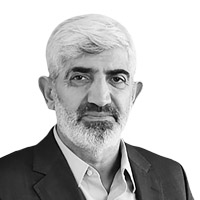www.aljazeerah.info
Opinion Editorials, June 2022
Archives
Mission & Name
Conflict Terminology
Editorials
Gaza Holocaust
Gulf War
Isdood
Islam
News
News Photos
Opinion Editorials
US Foreign Policy (Dr. El-Najjar's Articles)
www.aljazeerah.info
Turkey's Erdogan Expands Its Quasi-Empire Mission By Ihsan Aktash Daily Sabah, June 18, 2022 |
 |
 |
|
Turkey's mission expansion
Some nations have histories, cultures, civilizations and great empires. And over time, it is thought that these empires and administrative cultures had disappeared. When you look at the world in the 14th century, there was almost Turkish domination from Central Asia to Europe: the Great Timurid Empire in Transoxiana, the Mughal Shah, which ruled for many years in India, the Golden Horde, which ruled today's Russia from one end to the other, the Ottoman Empire from the Middle East to the Balkans, the Iranian Shah in Iran and Egypt. The Mamluks in the Middle East were also empires under Turkish rule.
When the age of empires came to an end, especially in a world war that started with the competition of England, France and Germany, one end of the Ottoman Empire's border was still in Galicia, one end in Yemen, the other in Libya, Chad and Saudi Arabia. It was on the peninsula and the Caucasus. In the Balkans, today's Macedonia and Thessaloniki were still Ottoman territories. When World War I ended and the empires disappeared from the stage, the last empire of the Turks, the Ottoman Empire, also ended.
While nearly half of the world was colonized by England, France or Western states after the war, the war of independence started in Anatolia and Turkey was reestablished as a nation-state by declaring its independence. When the Republic of Turkey was founded and its mission as a nation-state emerged, the world's dominant states were convinced Turkey would never regain its former mission, or they made every effort not to identify Turkey as a nation with a clear road map.
Frozen civilization
It is important to use the expression "not a destroyed civilization, but a frozen civilization" for the Ottoman legacy. In fact, we can have a very good discussion on the freeze theory in this statement. In other words, we can negotiate with some situations that one day it will be able to become alive, the ice block will be dissolved and it will fulfill the mission it occupied in history.
When the Cold War ended, many countries in the east and west of Turkey declared their independence. Turgut Özal, the late prime minister of Turkey, was one of the leaders who saw this void in the world for the first time, and he used the phrase "Turkish world from the Adriatic to the Great Wall of China" because states such as today's Kazakhstan, Uzbekistan, Tajikistan, Kyrgyzstan and Turkmenistan had declared their independence from Russia one by one. They soon launched direct political and diplomatic relations with Turkey. Today, Macedonia, Bosnia-Herzegovina and Ukraine in the Balkans sometimes resemble Bulgaria's relations with Turkey a hundred years ago. We have seen how valuable Turkey's balanced stance has been for the Ukrainians in the Russia-Ukraine war.
Although Turkey's economic growth in the last 20 years has not been strong enough to support the foreign policy mission of a regional power, Turkey's mission naturally expands due to the new strategic balances in the world and the vacuum created by global powers.
Today, when a problem arises in Afghanistan, Turkey is in the position of the cornerstone of the negotiations. Turkey is a direct party to the stability of Libya. Turkey is a part of the process in the Azerbaijan-Armenia relations in Karabakh. It has maintained the same position during the Ukraine-Russia war. As of today, Syria, Russia and Turkey are negotiating for the security of Syria to end the suffering of the Syrian people. The relations carried out in the Middle East, the reorganization of relations with Israel-Saudi Arabia and Egypt, Turkey's natural gas exploration in the Mediterranean and Turkey-Greece relations are all signs of Turkey's mission expansion. Although Turkey's power stems from its historical potential and mission, the government that prepared Turkey in accordance with its future formation is also an influential factor.
When there is a leadership crisis in the world and no charismatic leaders to manage many European countries, it is important to have a leader like President Recep Tayyip Erdoğan who is experienced, knows what he is doing, has extensive knowledge of foreign policy, and can sit and negotiate with all the leaders of the world on equal terms. In addition, the future expectations of the people and the identification of the leader's identity are among the factors that affect the expansion of Turkey's mission.
ABOUT THE AUTHOR
İhsan Aktaş is Chairman of the Board of GENAR Research Company. He is an academic at the Department of Communication at Istanbul Medipol University.
Turkey's mission expansion | Column (dailysabah.com)
***
Share the link of this article with your facebook friends
|
|
|
|
||
|
||||||


